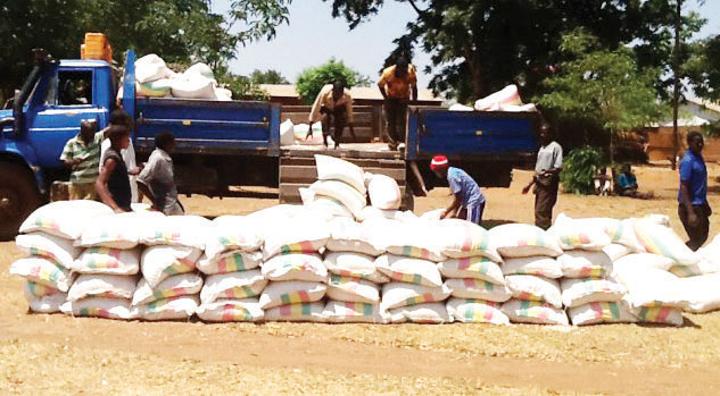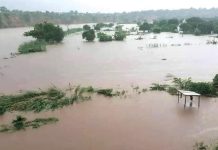Africa-Press – Malawi. Mwapata Institute, a local agricultural policy think-tank, has projected a shrink in food output in the next season, saying most farmers in the country will not afford fertilizer.
Price of fertiliser continues rising, reaching K73, 000 per 50 kilogramme bag, according to the institute, which says is beyond the reach of average subsistence farmers.
The research institute, in partnership with the United Nations Development Programme and the National Planning Commission, recently consolidated research findings on the threats and opportunities from the Russo- Ukrainian War on Malawi.
This comes as the government is likely going to half the number of beneficiaries of the Affordable Input Programme from last growing season’s 3.7 million.
Research fellow at the institute, Anderson Gondwe, said Russia and Ukraine are among the largest producers of fertiliser and that their conflict has caused a global shortage, pushing up prices to somewhere between K62,700 to K73,000.
He argues that that might lead to lower food production in the 2022-2023 season, leading to food insecurity. In the consolidated report, Mwapata Institute has suggested both immediate and long-time solutions to minimise the negative effects on Malawi.
“Timely procurement of fertiliser and promoting sustainable soil management systems, financing mega farms throughout the value chain and investing in fertiliser production are some of the solutions in offer,” says the report.
Nevertheless, the experts stated that the situation presents an opportunity for Malawi in which, among others, the country can increase production of sunflower and wheat which are exports from the countries in conflict.
Last month, The Daily Times learnt that in its bidding document for fertiliser, the government wanted about 1.8 million bags of Urea and same quantity for NPK translating to 1.8 million beneficiaries down from 3.7 million beneficiaries.
Several experts and farmers continue raising fears that most Malawians would not be able to buy unsubsidised fertiliser whose prices have skyrocketed since Russia invaded Ukraine last year. The government, however, has been assuring the public that it was doing all it could to make sure that people purchase the commodity.
Last month Fertiliser Association of Malawi Executive Administrative Officer Mbawaka Phiri, told the Daily Times that some of its members had fertiliser kept in Mozambique but needed forex to bring the commodity into Malawi.
Speaking during the Umhlangano wa Maseko Ngoni Annual Cultural Festival in Ntcheu on Saturday, President Lazarus Chakwera said the government was working around the clock for timely delivery of fertiliser under AIP.
Malawi’s maize harvest has gone down to 3.7 million metric tonnes this season, compared to the 4.5 million metric tonnes realised in the 2020-21 agriculture year.
There are also fears that 3.8 million people would be food insecure from October to March 2023. Mathews Kasanda is a journalist who holds a Bachelor of Arts in Journalism from University of Malawi (The Polytechnic).
In 2015, Media Institute of Southern Africa awarded him the Best Print Media Education Journalist of the Year accolade. He joined Times Group Newsroom in September 2019.
For More News And Analysis About Malawi Follow Africa-Press






